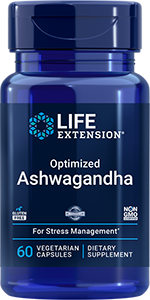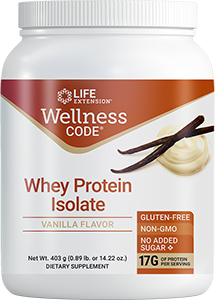 | April 2, 2010 | Eating more chocolate associated with fewer cardiovascular events | | An article published online on March 31, 2010 in the European Heart Journal reveals more good news for chocolate lovers: consuming as little as a square of chocolate per day could help reduce the risk of hypertension and heart disease. For the current research, nutritional epidemiologist Dr. Brian Buijsee of the German Institute of Human Nutrition in Nuthetal and his colleagues analyzed data from 19,357 participants in the Potsdam arm of the European Prospective Investigation into Cancer (EPIC), which enrolled 27,548 middle aged men and women between 1994 and 1998. Blood pressure and anthropometric measurements were obtained upon enrollment, and dietary questionnaires were administered. Subjects were followed for an average of 8 years, during which death certificates and questionnaires completed by the participants every 2-3 years reported information concerning chronic disease, including the incidence of heart attack and stroke. Participants whose chocolate intake ranked among the highest 25 percent at an average of 7.5 grams per day had lower blood pressure and a significantly reduced risk of experiencing heart attack or stroke compared to subjects whose intake was lowest at 1.7 grams per day. The difference in intake amounts to the equivalent of a square of a 100 gram chocolate bar. "Our hypothesis was that because chocolate appears to have a pronounced effect on blood pressure, therefore chocolate consumption would lower the risk of strokes and heart attacks, with a stronger effect being seen for stroke," Dr Buijsse stated. "People who ate the most amount of chocolate were at a 39% lower risk than those with the lowest chocolate intakes. To put it in terms of absolute risk, if people in the group eating the least amount of chocolate (of whom 219 per 10,000 had a heart attack or stroke) increased their chocolate intake by six grams a day, 85 fewer heart attacks and strokes per 10,000 people could be expected to occur over a period of about ten years. If the 39% lower risk is generalized to the general population, the number of avoidable heart attacks and strokes could be higher because the absolute risk in the general population is higher." When the researchers adjusted the analysis for blood pressure, lower blood pressure was found to explain only an average 12 percent of the association of chocolate with fewer cardiovascular events. The researchers note that cocoa flavanols improve other cardiovascular risk factors, including endothelial and platelet function. "Flavanols appear to be the substances in cocoa that are responsible for improving the bioavailability of nitric oxide from the cells that line the inner wall of blood vessels – vascular endothelial cells," explained Dr Buijsse. "Nitric oxide is a gas that, once released, causes the smooth muscle cells of the blood vessels to relax and widen; this may contribute to lower blood pressure. Nitric oxide also improves platelet function, making the blood less sticky, and makes the vascular endothelium less attractive for white blood cells to attach and stick around." "Basic science has demonstrated quite convincingly that dark chocolate particularly, with a cocoa content of at least 70%, reduces oxidative stress and improves vascular and platelet function," commented Professor of Cardiology Frank Ruschitzka, who is the Director of Heart Failure/Transplantation at the University Hospital Zurich, Switzerland, and a Fellow of the European Society of Cardiology. "However, before you rush to add dark chocolate to your diet, be aware that 100g of dark chocolate contains roughly 500 calories. As such, you may want to subtract an equivalent amount of calories, by cutting back on other foods, to avoid weight gain." | |  |  | | Atherosclerosis is a far-reaching disease with devastating consequences. Life Extension’s program for reducing the risk associated with atherosclerosis is based on aggressive measures to promote a healthy endothelium and reduce risk factors associated with coronary artery disease. Because all adults are at risk of atherosclerosis, all adults should make the necessary lifestyle changes to protect their arteries. This means getting adequate exercise under the supervision of a physician and eating a diet rich in fruits and vegetables and low in saturated fat. Also, weight loss by obese and overweight adults is an important element in reducing risk of atherosclerosis. The so-called French paradox is the phenomenon of low rates of heart disease in a country known for its high intake of fatty foods. Recent research suggests that one of the reasons French people are protected from heart disease is a high intake of quercetin, a potent antioxidant and polyphenol found in red wine (Kuhlman CR et al 2005). Numerous studies have examined quercetin and found it to be both a powerful antioxidant and a stimulator of nitric oxide, which inhibits endothelial proliferation, a hallmark of atherosclerosis (Kuhlman CR et al 2005). Studies have shown the following: - In spontaneously hypertensive rats, quercetin, along with other bioflavonoids, preserved endothelial function by increasing nitric oxide and reducing blood pressure (Machha A et al 2005).
- A porcine study showed that quercetin has potent antioxidative properties and protects endothelial cells against induced dysfunction (Reiterer G et al 2004).
Green tea extracts, which are rich in natural antioxidants and antiplatelet agents, are routinely used in Asia to lower blood pressure and reduce elevated cholesterol. In studies of smokers, 600 mL green tea (not extract) was shown to decrease markers of inflammation and decrease oxidized cholesterol, both of which are intimately involved in the development of atherosclerosis (Lee W et al 2005b). | MDs, NDs, DOs, PAs, RNs, PharmDs, PDs, holistic hypnotherapists, chiropractors, oriental medicine practitioners and anyone else interested in optimal health through integrative medicine are invited to attend our 3rd annual symposium on science-based medicine! - Presenters are preeminent in their fields.
- Protocols were never covered in traditional medical schools.
- Topics are provocative, insightful, filled with practical applications.
- And continuing education credits are part of the package!
Come learn from other skilled health professionals. Explore nontraditional, science-based methods and treatments. Learn about the political and legal ramifications of an integrative/alternative medical practice. Find out how to integrate nutraceuticals and natural products into your practice. Early Bird Registration Specials
(prices good through June 30, 2010)
$599 for All Medical Professionals
(CME credits available)
$149 for Life Extension Members
(non-medical professionals only)
Full Tuition Registration
(prices effective after June 30, 2010)
$799 for All Medical Professionals
(CME credits available)
$199 for Life Extension Members
(non-medical professionals only) | |  |   | | Scientists have discovered that the Indian herb ashwagandha (Withania somnifera) counters some of the oxidative damage generated by nervous tension. Ashwagandha has been shown to confer improvements in well-being and a healthy outlook. In a large clinical trial, ashwagandha reduced levels of the hormone cortisol by up to 26%, while maintaining already normal blood sugar levels and already normal lipid profiles. Subjects who took the standardized ashwagandha extract reported improvements in energy, sleep and well-being, as well as diminished fatigue. Additional research suggests that ashwagandha confers neuroprotection by supporting the regeneration of axons and dendrites, nerve cell components that support brain and nervous system function. | | |   | | Scientists have begun to investigate the ability of certain biological components of whey protein to support immunity. Those include: lactoferrin, beta-lactoglobulin, alpha-lactalbumin, glycomacropeptide, and immunoglobulins. Years of scientific research have resulted in the development of a specially designed whey protein that can support immune function, protect against free radical attack, and maintain lean muscle mass. Life Extension® offers whey protein powders in four flavors that contain added lactoferrin. Life Extension uses a production method that produces a high quality whey protein isolate. Using a low temperature microfiltration technique, it is possible to produce a 98% undenatured whey protein isolate that retains all the important sub-fractions, such as lactoferrin, a strong antioxidant with immune-supporting properties. | | | |  | Life Extension Update | What's Hot | Life Extension Magazine® | |















